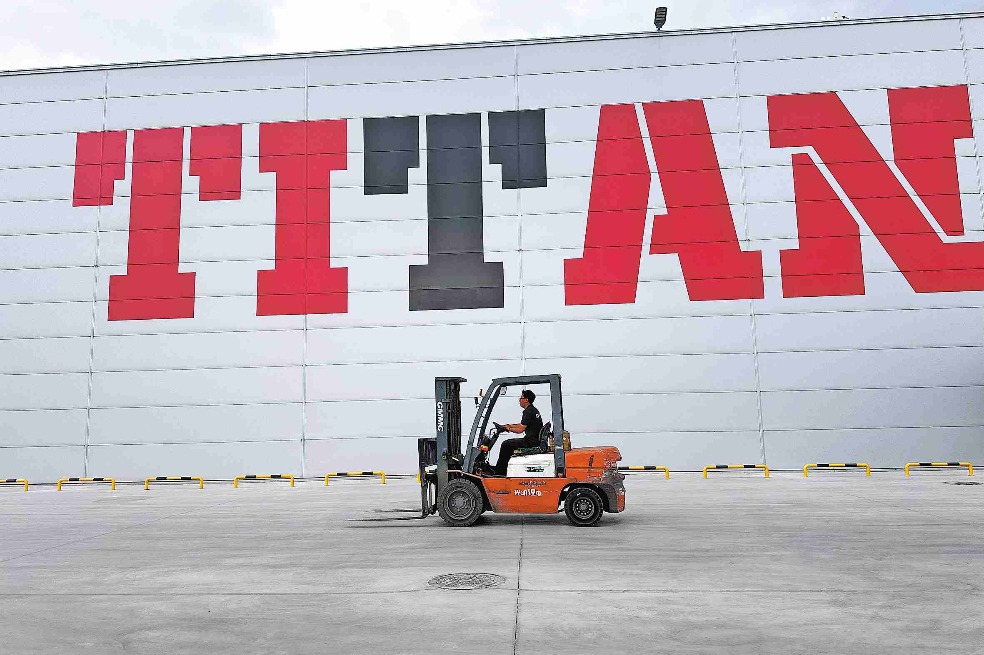Banks urged to seek quality over quantity
Expert: Some lenders remain fixated on scale, speed; chasing superficial growth


To shift the banking sector from scale-driven expansion to value creation and reduce long-term risk, experts have called on banks to strengthen self-discipline and abandon their obsession with size and speed, warning against destructive "involution-style" competition.
In recent years, under mounting pressure, China's banking sector has increasingly engaged in such competition — marked by irrational price wars, relaxed risk controls, service homogenization and distorted performance metrics.
Some small and medium-sized lenders have offered shopping cards, cash vouchers and even cooking oil to attract depositors, while others have manipulated interest calculations to artificially inflate deposit figures or boost deposit and loan volumes at month or quarter-end to meet targets. In some cases, annual interest rates on personal loans have dropped below 3 percent, even lower than banks' funding costs.
Dong Ximiao, chief researcher at Merchants Union Consumer Finance and deputy director of the Shanghai Institution for Finance & Development, said the drivers behind this behavior are twofold — the economy's downward cycle and weak demand have intensified market competition, and some banks remain fixated on scale and speed, chasing superficial growth in assets and market share.
These practices not only erode banking sector profitability, but also heighten financial risks. "Excessive competition often drives short-term tactics to seize market share and clients, disrupting financial order and accumulating long-term risks," Dong said, adding that in order to promote healthier competition, regulators should foster a multitiered, diversified financial system that allows institutions to align with market needs, leverage their strengths and offer targeted services to various client groups.
He also called for accelerated reform and risk mitigation in small and medium-sized banks, encouraging a shift from quantity to quality and improving the overall competitive landscape.
The Political Bureau of the Communist Party of China Central Committee held a meeting on Wednesday during which it was stated that China will further regulate disorderly competition among enterprises in accordance with laws and regulations.
The call for regulation and reform has been echoed. Also on Wednesday, Industrial and Commercial Bank of China, the country's largest bank by assets, announced plans to take the lead in addressing "involution-style" competition. Stressing the importance of aligning products with real customer needs rather than relying on price competition, ICBC outlined a three-pronged approach.
First, using artificial intelligence and its large model platform, ICBC aims to transform its tech capabilities into service advantages — for example, analyzing corporate data to provide comprehensive solutions rather than simply issuing loans.
Second, by linking governments, businesses and individual clients, the bank seeks to generate new financial demand in areas like e-government and industrial collaboration.
Third, ICBC pledged to uphold credit standards and continue reinforcing its risk management framework to steer clear of scale-driven temptations.
Similar signals emerged on July 24 when the Banking Association of Guangdong released a self-discipline convention against unfair competition. It emphasized rational pricing as well as strict control over rebates and incentives, and included both recommended and prohibited practices.
Regulators have also repeatedly stressed the need to improve the quality and efficiency of financial services. At the core of this directive is a strategic shift from expanding size to creating value.
"Involution-style competition is fundamentally incompatible with China's new development philosophy and the goal of high-quality development. It must be decisively eliminated," said Lou Feipeng, a researcher at the Postal Savings Bank of China. He warned that its spread across the banking sector — fueled by both internal dynamics and external pressure — poses serious risks that cannot be ignored.
"The industry must proactively seek transformation, strengthen regulation and self-discipline, and collaborate with market oversight to curb involution-style competition and support high-quality development," Lou said.
He added that homogeneous expansion limits banks' ability to meet diverse financial needs and, without meaningful innovation, this often leads to inefficient capital allocation — diverting funds into arbitrage instead of productive sectors like tech innovation, ultimately weakening the effectiveness of China's monetary policy.
Lou called on lenders to invest in product and service innovation based on thorough market research, refine product components to enhance targeting and embrace digital transformation. He also recommended establishing specialized branches tailored to regional or sectoral needs.




































